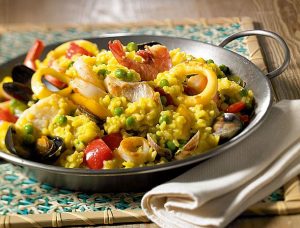
property for sale costa blanca, costa blanca properties for sale,property costa blanca,estate agents costa blanca,cheap properties in spain
The Costa Blanca, the 180 km long coastal strip that begins just south of Valencia and ends 100 km south of Alicante. But now the bright beaches are no longer the sole focus. More than ever before it’s all about discovery or the combination: bathing and shopping downstairs, living upstairs. For the coastal mountains have something that can hardly be paid for: this magnificent view of the wide band in dark blue, this unbeatable view over pine forests and tiny villages from which nobody has yet renovated everyday life. They stand for retreat and the growing need for individuality – and for being in the middle of the summer hustle and bustle in ten or twenty minutes by car – if you want it at all. Plants, mountains, soils In tiny settlements such as Vall de Gallinera near Pego, more and more “Casas Rurales” are opening up in disused oil mills, in former farmhouses, in sight of Moorish fortresses that have long since been abandoned and often decayed. Fincas above the many orange plantations are rented as holiday homes – with all the trimmings. On their own barbecue, fresh giltheads sizzle side by side with bright red Gambas de DĂ©nia, the result of a morning shopping trip to the market hall in the coastal town of DĂ©nia. It is accompanied by wine from the Mendoza bodega in Alfaz del Pi, 30 minutes by car: “The secret is plants, mountains, soils – not barrels, labelling machines and cellars. You can buy containers and equipment from wholesalers, but you have to choose your floors carefully,” says winegrower Pepe Mendoza. It is he who, together with his father Enrique, has led the region, which was once ridiculed as a cultivation area, to awards. Magician, discoverer The coast is establishing itself as a safe haven for gourmets – not least because top chefs such as Quique Dacosta, a magician awarded three Michelin stars, run restaurants in and around DĂ©nia. Holiday home tenants like to eat well, but even more they go on a journey of discovery in the markets and shops of the region and buy fresh ingredients because they cook for themselves. You are looking for the best Jamon IbericĂł with melon, for cheese made from raw sheep’s milk in the village, ask the Noguera beekeeper family in Llosa de Xamacho for the Miel del Azahar – orange blossom honey. Or discover Jordi Aracil’s jams on the road near Confrides. He no longer wanted to spend the many evenings at the stove of his restaurant, closed it up and now cooks tomato, onion or lemon-sugar cane jam whenever it suits his time. Tasting all this has nothing to do with the mass tourism of the past. This has magic, combined with the joy of discovery and the fun of making something out of it. Also because you feel as if you have always belonged here, as if you belong to it: when eating, when tasting and when smelling – when breathing deeply. And because suddenly everything here is so Spanish, as one would not have thought it possible any more.

